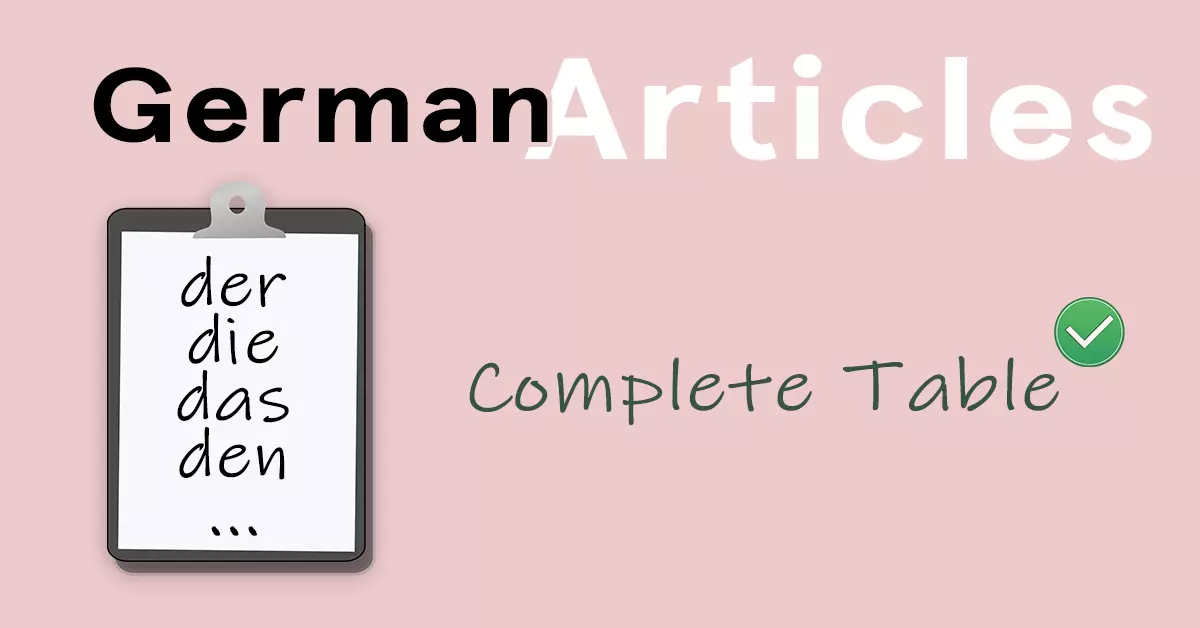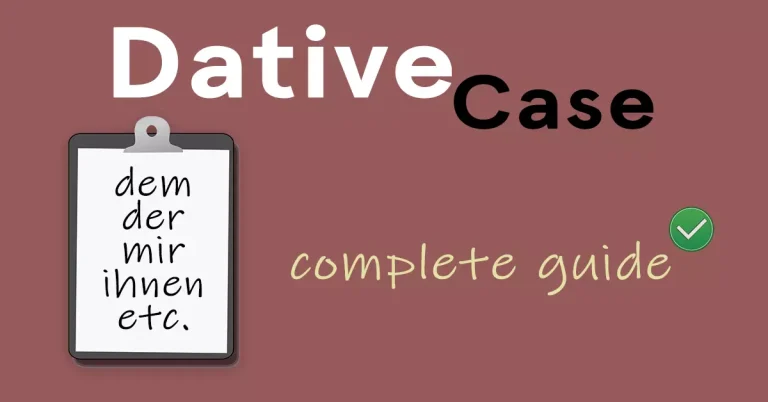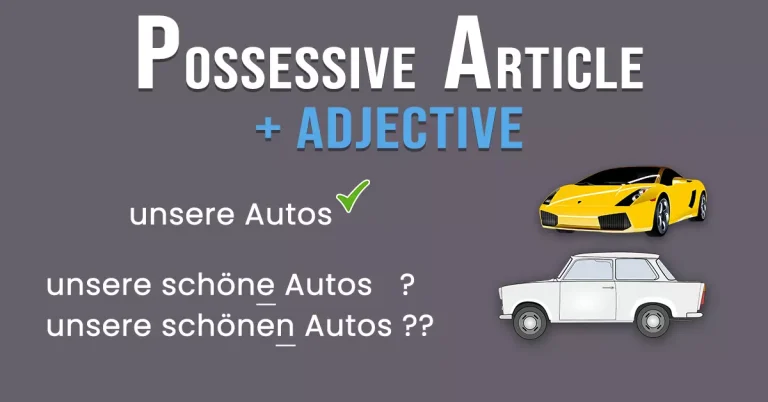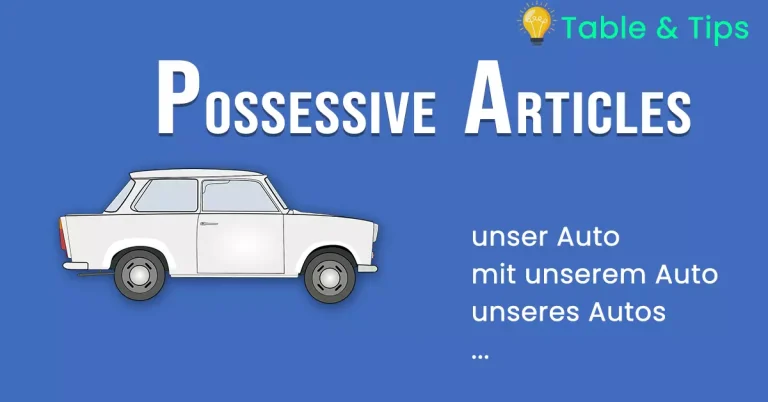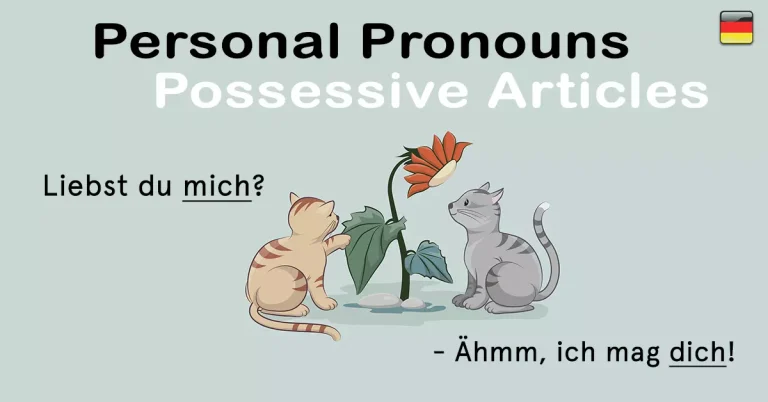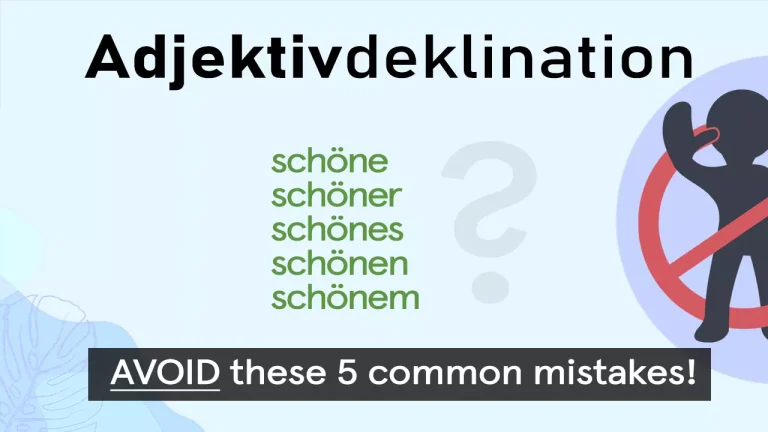German uses articles before nouns. You need to change the articles according to which gender (masculine, feminine, neutral) and which case (nominative, accusative, dative, genitive) it is used in. Lastly, it also depends on the number (singular vs. plural). Luckily, all genders are the same in the plural, which gives it 4 categories (masculine, feminine, neutral and the plural).

Within these categories there are several types of articles:
- the definite article: der Mann
- the indefinite article: ein Mann
- the negative article: kein Mann
- the “zero article” (no article): Mann
The zero article is quite rare in the singular, but occurs frequently in the plural.
In fact, In the plural, the indefinite article and the “zero” article” coincide. In other words, there is no indefinite article in the plural.
| maskulin | feminin | neutral | Plural | |
| NOMINATIV | der Mann ein Mann kein Mann Mann | die Frau eine Frau keine Frau Frau | das Kind ein Kind kein Kind Kind | die Häuser Häuser keine Häuser |
| AKKUSATIV | den Mann einen Mann keinen Mann Mann | die Frau eine Frau keine Frau Frau | das Kind ein Kind kein Kind Kind | die Häuser Häuser keine Häuser |
| DATIV | dem Mann einem Mann keinem Mann Mann | der Frau einer Frau keiner Frau schöner Frau | dem Kind einem Kind keinem Kind Kind | den Häusern Häusern keinen Häusern |
| GENITIV | des Mann(e)s eines Mann(e)s keines Mann(e)s – | der Frau einer Frau keiner Frau – | des Kind(e)s eines Kind(e)s keines Kind(e)s – | der Häuser keiner Häuser – |
Examples:
| Der Mann hat einen Hund. | Subjekt ► Nominativ |
| Der Mann hat einen Hund. | haben +Akkusativ |
| Er geht mit dem Hund spazieren. | mit +Dativ |
| Der Name des Hundes ist Lewis. | Genitiv |
Download section
Here you can find downloadable bonus material such as PDF files for this topic.

For DMM members only. You can sign up for free or make a voluntary monthly donation.
Exercises
Test your knowledge with exercises on this topic!
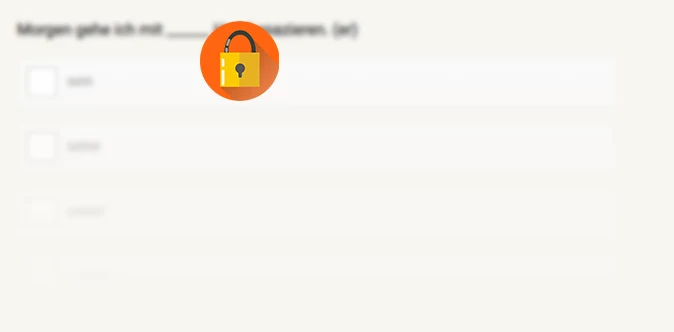
For DMM members only. You can sign up for free or make a voluntary monthly donation.
